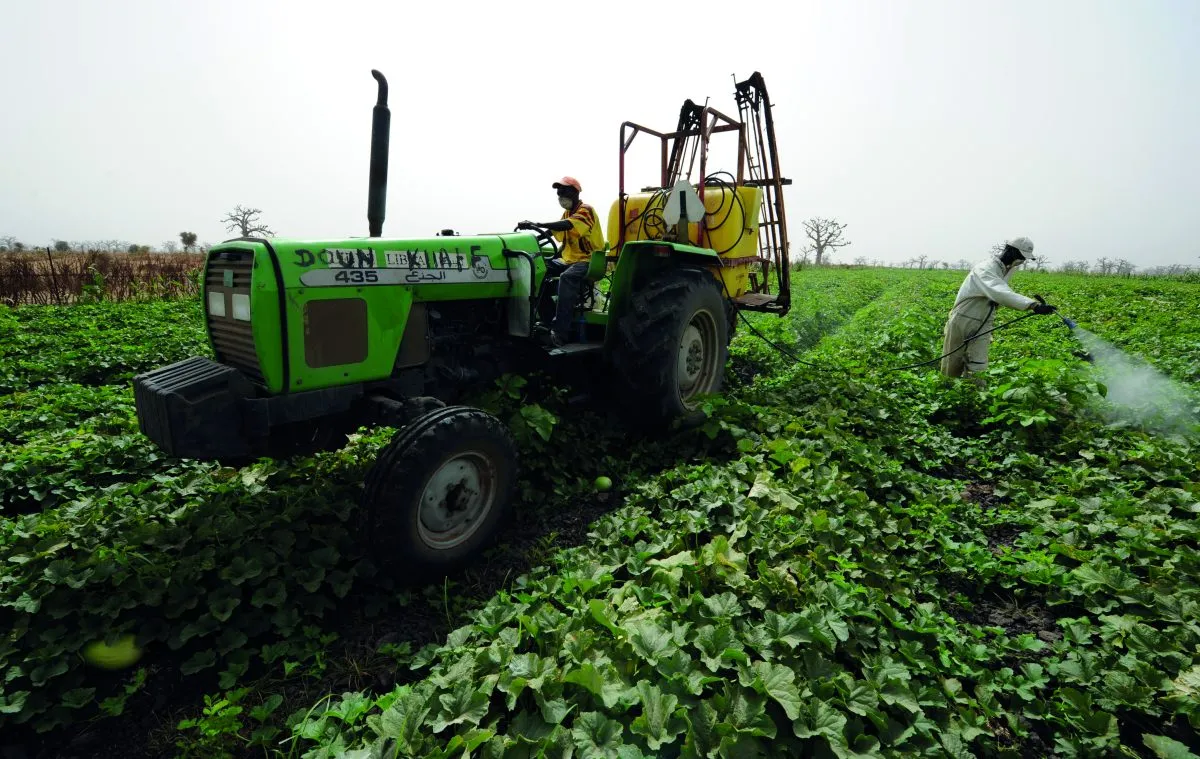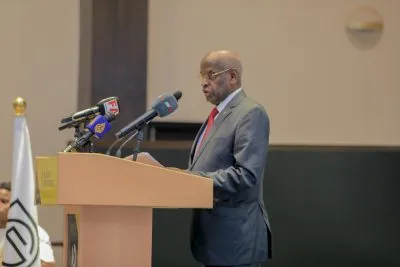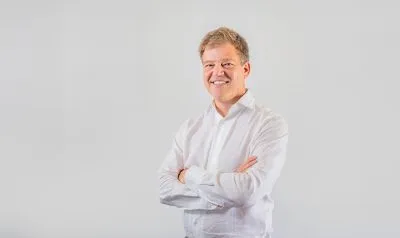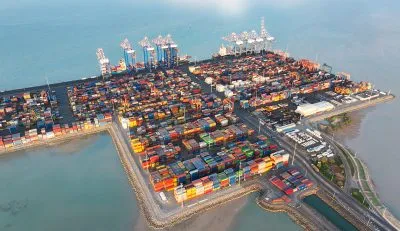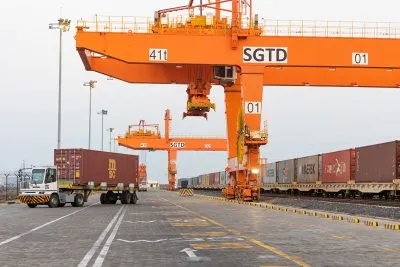“We have to make farming sexy again,” says Ndeye Yacine Barry, policy innovation researcher at development agency Akademiya2063. “We need to make it a business and not a poor sector where farmers cannot even afford to feed themselves.”
This sums up the paradoxes facing Senegalese agriculture. Over half of the population work in farming, yet the country is critically dependent on imports for food security. In a rice-mad country, where the average Senegalese eats more than a large wrestler’s body weight (100kg) of the grain each year, less than half is produced domestically and the nation is the second largest rice importer in sub-Saharan Africa.
A wake-up call
The conflict in Ukraine, meanwhile, has sharpened focus on this overreliance on imports, doubling food import and fertiliser prices overnight, emptying foreign reserves of currency while threatening food security and production in one fell swoop.
“It has been a wake-up call that we have to reduce our imports,” says Yacine Barry. The question of imports was central at the Dakar 2 Summit for food sovereignty in January. Senegal’s President Macky Sall signalled a new era of African food production at the summit, standing in front of 34 heads of state to announce: “Africa must learn to feed itself, and even feed the world.”
This is the vision underpinning Sall’s agricultural policies and the description of the sector as the motor of the economy. But it is a long road to walk, and the sector faces myriad challenges.
The aim is simple; produce more. But this is less than straightforward when the majority of Senegal’s rural population of 9m are subsistence farmers, producing enough food for their family and selling a modest amount on the market. This is not an efficient model when it comes to feeding a nation.
“Most of our farmers follow a traditional model. They work on small plots with no inputs, and we don’t progress,” says general director of Senegal’s La Banque Agricole, Malick Ndiaye. “They are not producing for the market.”
“We know how to grow more intensively. We know how to get higher yields, but our problem lies in getting the population to adopt these practices,” explains Ndiaye.
Underlying this problem, however, is potential. Unlike in the global north, where productivity gains have reached the point of diminishing returns, Senegal’s have yet to be made.
Emerging Senegal
It will be no easy task achieving a coalescence between the dominant family farming model, agribusiness and rural entrepreneurship, but this is what Sall’s flagship Plan for an Emerging Senegal policy reform has set out to do.
Intensification is central to the policy portfolio, from subsidising fertiliser and modern seeds required for farmers to increase production, to promoting mechanisation to operate more efficiently. Expanding irrigation capacity to accelerate rice production is a key area of investment and recent progress shows the intent.
The government’s “rice offensive” has seen production triple between 2011 and 2020, but it is still struggling to keep up with the appetites of the fast-growing population, set to double in the next two decades. However, there is plenty of capacity to exploit.
Senegal boasts the fertile deltas of the Senegal river, which borders Mauritania in the north, and the Gambia river in the southern region of Casamance. These are well suited to rice production, but only one-third of the possible area has been irrigated and farmers still lack access to machinery to make their harvests efficient. Meanwhile, these are areas that are vulnerable to the changing climate as rising sea levels cause salinisation of the deltas, threatening rice productivity.
Drought is another key concern, with 95% of agricultural production dependent on the annual three-month rainy period, made ever more irregular by climate change.
Managing risk
Farming has always been a risky business, subject to the whims of the weather: but risk is exacerbated by climate change – and this is stifling investment in the sector, according to Ndiaye. “Farming is a risky industry, so the question is: how do we mitigate this risk, to make it more attractive for investors?” he asks.
That is what La Banque Agricole has been working on, in conjunction with the government and the World Bank: to guarantee investments and loans against major shocks. “The state is developing an insurance for banks like us investing in agriculture. This will guarantee a part of portfolios each year against the risk of drought and the loss of yield,” explains Ndiaye.
“This insurance partnership is the first of its kind in Africa and will help to de-risk the sector, making it a more attractive sector for investment,” he says. This access to finance is a fundamental lever for increasing output, according to the Banque Agricole general director. “If the state wants to increase its production to address food insecurity, it needs to expand its land base, increase access to inputs and grow yields. All this requires money,” explains Ndiaye.
One area of immense potential is the horticultural industry. This has undergone rapid growth over the last five years, increasing production by 30%.
“Senegal has access to export markets, suitable land, lots of sun and certainly the technical capacity to grow tomatoes, courgettes, melons, and green beans,” says Ndiaye. “Unlike cereals and a lot of agricultural goods, these are products with added value.”
Processing: the missing middle of African agriculture
Meanwhile, government investment has been flowing into agro-processing capacity, a key component of the “Senegal Emergent” project. The lack of processing capacity to turn raw agricultural goods into consumable food has hurt the Senegalese nation for decades.
Senegal’s import bill and food prices continue to soar because it tends to export raw agricultural materials and import the processed final products, missing out on the lucrative middle part. For example, out of the 82,000 tonnes of cashews exported in 2021, only 5% were processed in Senegal.
To plug this leak of jobs, currency and capital out of the nation, the state has financed five regional agro-industrial hubs, termed Agropoles. These will act as incubators for the processing industry, providing infrastructure, training and logistics for the sector. “When we export raw material, we export our labour,” says Agropole project manager, Moustapha Lo, estimating that weak agricultural value chains see Senegal missing out on billions of dollars every year.
“The central objective [of the Agropoles] is to process our agricultural production here and create value in our supply chains, create jobs and reduce our balance of payments,” says Lo. But it all comes back to production, as Lo highlights: “To succeed, we first need to reinforce our agricultural output.”
“Without a good primary material to work with, there can be no processing.”
When it comes to foreign investment, there are currently few incentives to process in Senegal.
Returning more value to the continent
Swedish entrepreneur Linnea Falkinger has learned this as founder of a start-up that processes waste cashew apples into alternative meat, Cashewmeetly. “People love the product, but right now the biggest obstacle is scaling up production,” she explains.
“Every day people ask me: why don’t you just buy the apples and do the processing somewhere in Europe where you have control? It’s going to be so much easier and faster (they argue),” says Falkinger. She is building a processing factory in Zuiginchor in the southern region of Casamance – but has suffered construction delays and other difficulties. Falkinger is, however, determined to break out of this model.
She places the narrative of returning more value to the continent at the centre of her marketing strategy: “I say no, that is not what I want, because I want to take this difficult road to open up the market for the African people, the farmers and to move everything back local.”
As Falkinger suggests, it will be no mean feat to shift from subsistence to business, and it will take serious political will and investment for agriculture to become the driving force of the nation. But if the current trajectory is anything to go by, Senegal is on the right path.
Read more about Senegal’s booming economy in our Senegal Dossier.
Want to continue reading? Subscribe today.
You've read all your free articles for this month! Subscribe now to enjoy full access to our content.
Digital Monthly
£8.00 / month
Receive full unlimited access to our articles, opinions, podcasts and more.
Digital Yearly
£70.00 / year
Our best value offer - save £26 and gain access to all of our digital content for an entire year!

 Sign in with Google
Sign in with Google 